In 2002, a new era of Grand Prix racing commenced, with 990cc, four-stroke engines replacing the 500cc, two-stroke engines that had ruled the class since 1975. In 2007, displacement was reduced to 800cc in an attempt to curb lap times and top speed, but increased back to 1000cc in 2012. No matter the engine displacement, these are the most powerful and sophisticated racing prototype motorcycles on the planet and require similar levels of talent from the riders to get the best out of them. Every manufacturer that has entered the MotoGP arena has won races, but these 10 motorcycles are the most successful.
TOP SPEED VIDEO OF THE DAY
10/10 Suzuki GSX-RR – 6 Wins

Rear three-quarter view of the Suzuki GSX-RR
Suzuki has had a love/hate relationship with MotoGP, failing to recreate success in the four-stroke era it enjoyed in the two-stroke era. Things got so bad that, at the end of the 2011 season, the manufacturer withdrew to assess its performance and have a complete re-think about the sport and its participation. The team came back in 2015 and the GSX-RR won its first race in 2016 (the previous GSVR won one race), courtesy of Maverick Viñales. A fall period then ensued, even though the GSX-RR was acknowledged as the best chassis on the grid. In 2019, Alex Rins won two races and, in 2020, a third race, while the championship went to teammate Joan Mir, who won only one race but scored six podiums. During the 2022 season, Suzuki announced they were pulling out of Grand Prix racing for good, citing economic reasons. Alex Rins proceeded to win two out of the last three races of the season, to Suzuki’s embarrassment.
9/10 Ducati GP8/GP17 – 6 wins
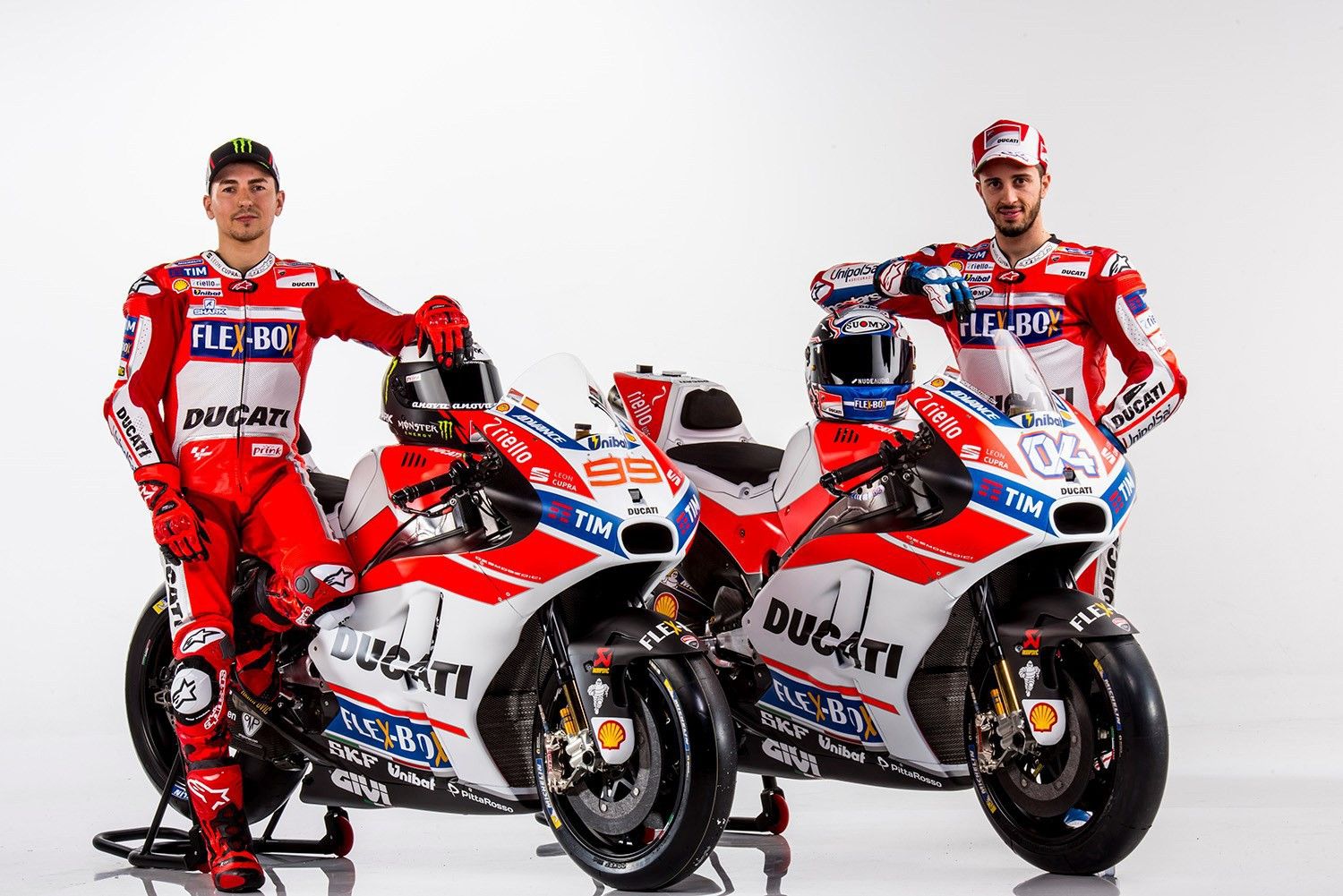
Ducati GP17 with Lorenzo and Dovizioso
Ducati’s race bikes are easy to order, since they are named after the year in which they debut. Thus, the GP8 is from 2008 and the GP17 from 2017. Australian rider Casey Stoner came into 2008 as the reigning world champion, but he faced a resurgent Valentino Rossi on a much-improved Yamaha M1. Stoner won six races but could not match Rossi, who won nine races. In 2017, Ducati was on the rise after a disappointing winless run lasting from 2011 to 2015. The GP17 was a revelation and, in the hands of Andrea Dovizioso, was a six-time winner during the season. This matched eventual champion Marc Marquez’s tally, but Marquez took the title thanks to six additional podiums to Dovizioso’s two. For the next five seasons, Ducati became the team to beat, and it all started with the GP17.
8/10 Ducati GP18 – 7 wins
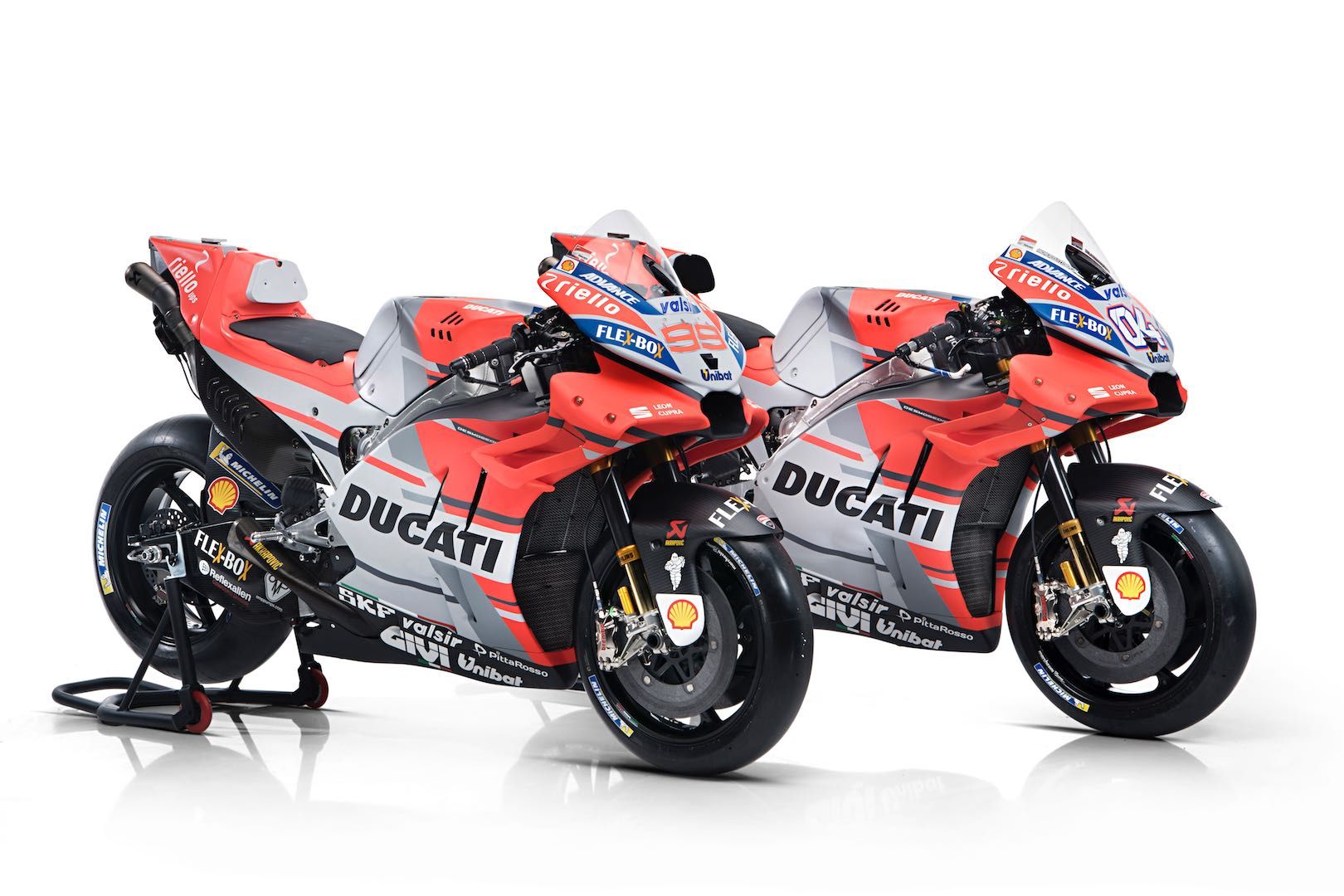
Pair of Ducati GP18 racing motorcycles
Ducati engines have always been powerful, clearly outstripping rivals on top speed on the straights, but they weren’t so effective in the corners, allowing rivals to run rings around them on tracks where top speed wasn’t such an issue. The GP18 was developed from the GP17, rather than being a completely new design, a feature of all Ducati’s from that point onwards. Sensationally, Jorge Lorenzo, in the second of his two seasons with Ducati, and after he had announced that he would be leaving the team in 2019, won three races to teammate Dovizioso’s four, but it wasn’t enough to prevent Marc Marquez from romping home to his sixth MotoGP title with 9 victories.
7/10 Ducati GP22 – 8 wins

Ducati GP22 with rider Bagnaia
Ducati’s steady evolution of their GP package culminated in both the manufacturers’ and riders’ championships in 2022, Francesco Bagnaia taking the title in the last round, winning seven races along the way. Teammate Jack Miller won one. In 2022, Ducati had an unprecedented eight bikes on the grid – a combination of 2021 and 2022 models – spread across four teams: the factory Ducati Lenovo team, Gresini Racing, Mooney VR46, and Pramac Racing. With Enea Bastianini taking four victories on his year-old GP21 model, 2022 was Ducati’s most successful MotoGP season ever.
6/10 Ducati GP7 – 11 wins
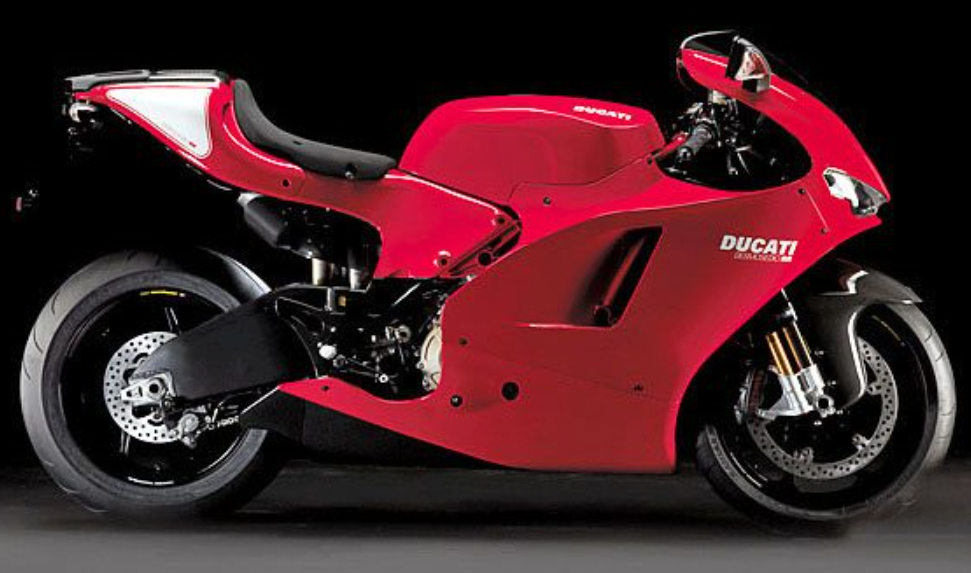
Stock image of a red Ducati Desmosedici GP7 facing right on a black background.
The GP7 deserves its place on this list not only for its 11 race victories but also because it took Casey Stoner to the championship, the first – in either 500cc or MotoGP racing – for Ducati. 2007 was the first year for the new 800cc engines and Ducati simply got it right the first time and had the right rider in Stoner to bring it all together. Ten race victories and one for teammate Capirossi also gave Ducati the manufacturers’ championship and it was the first non-Japanese premier class victory since MV Agusta’s final championship in 1974.
5/10 Ducati GP21 – 10 wins
The achievements of the Ducati GP21 are all the more remarkable due to the fact that its 10 victories were achieved over two seasons. In 2021, Francesco Bagnaia gave notice of his intentions for 2022 by winning four of the last six races, including the last two, while teammate jack Miller took two victories. In 2022, the GP21 was being run by Gresini racing and Enea Bastianini took four victories, an achievement that no Ducati satellite team has ever managed.
4/10 Honda RC212V – 24 wins
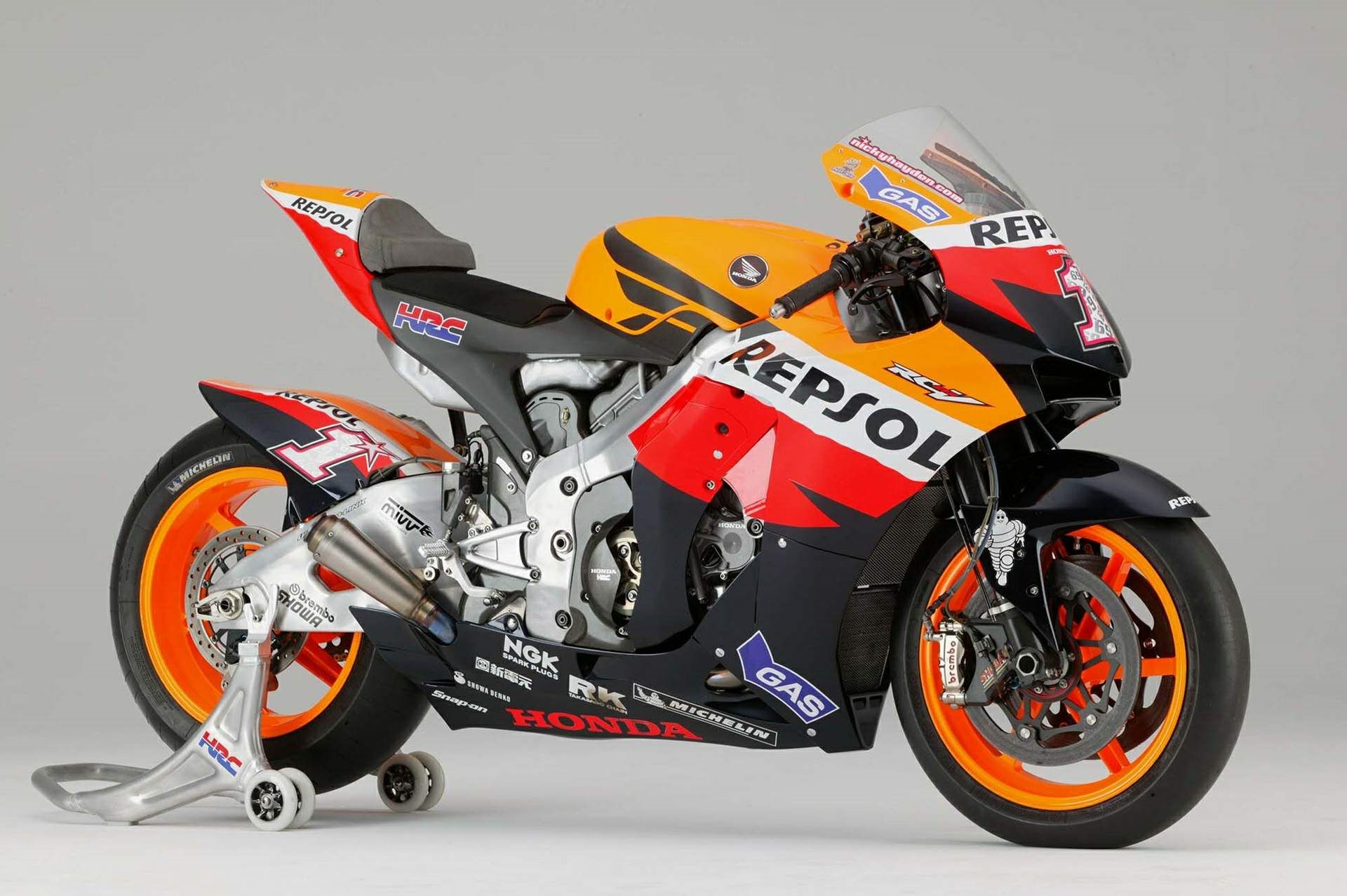
Honda RC212V facing right
A huge leap up to the next most-winning MotoGP bike and the start of Japanese domination on this list. Fresh off the back of Nicky Hayden’s championship in 2006, Honda had high hopes for 2007, which was being run to the new 800cc engine rule. However, despite winning 26 races in five seasons, Honda racing Company (HRC) won only one championship, Casey Stoner again taking the title in 2011, with the Australian winning 10 races to Dani Pedrosa’s 3. In total, Pedrosa won 11 races on the RC212V.
3/10 RC211V – 49 wins
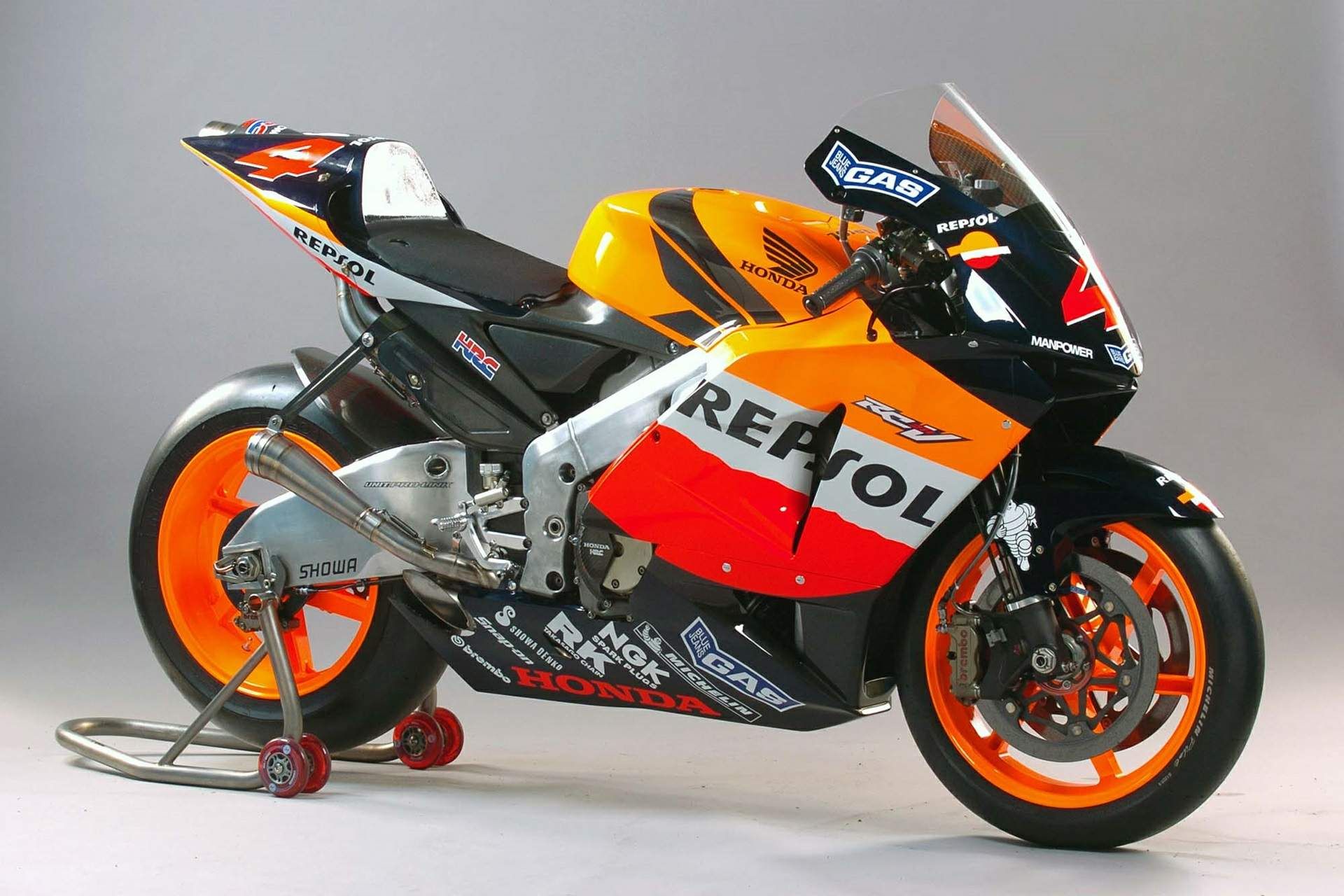
Honda RC211V facing right
Another huge leap in victories but a step back in time. The 2002 RC211V was Honda’s first 990cc MotoGP bike and propelled Valentino Rossi to championship numbers two and three in succession in 2003 and 2004, having won the 2001 title on the 500cc NSR500. Rossi’s domination is clear when you look at the statistics: in 2002 and 2003, he won 22 of the 28 RC211V’s victories. From 2004 to the end of the 2006 season, the RC211V won ‘only’ 21 races, although Nicky Hayden won the 2006 title.
2/10 Honda RC213V – 81 wins
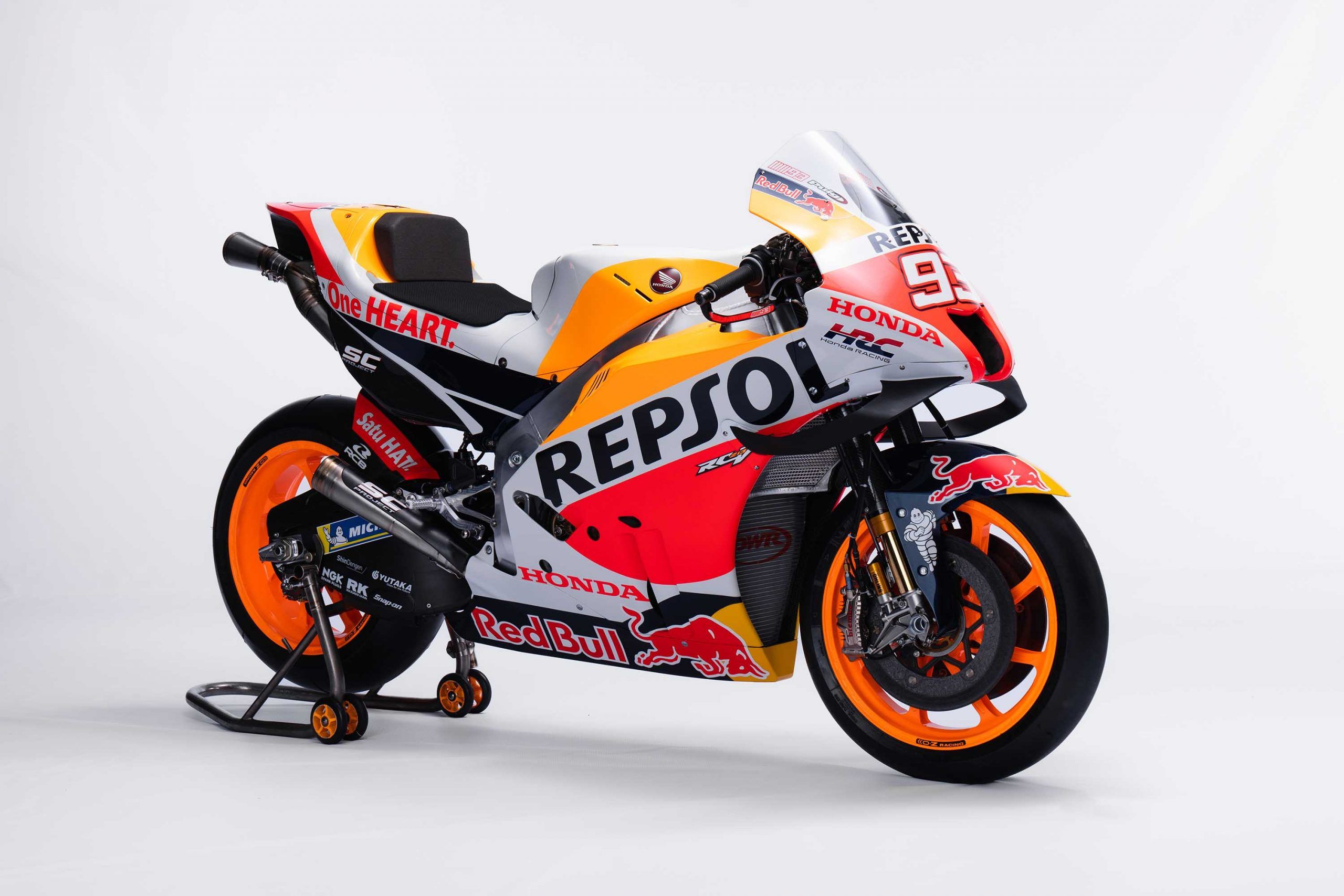
Honda RC213V facing right
Honda’s longest-serving race bike, although it would be fair to say there is probably little in common between the 2012 version and the 2022 one. Just so you know, the ‘213’ designation means the third race bike of the 21st century, just as the RC212 was the second and RC211 the first. 2012 saw a resumption in the 1000cc upper limit for race engines, with a maximum of four cylinders. Despite riders Stoner and Pedrosa winning 12 races between them, the title went to Yamaha’s Jorge Lorenzo. However, for 2013, Marc Marquez was in the team, replacing Stoner, who had retired. There then followed a domination that has only been seen a few times in the history of MotoGP, as Marquez used the RC213V to take six MotoGP titles in seven years up to 2019, the odd one out being 2015 when Lorenzo again won the championship. Marquez’ influence on the RC213V cannot be over-emphasized as, since his temporary withdrawal from MotoGP in early 2020 due to injury, Honda has only won three races, all courtesy of Marc Marquez, who returned in 2021, again temporarily. 2022 saw Honda winless for the first time in (almost) living memory.
1/10 Yamaha M1 – 118 wins
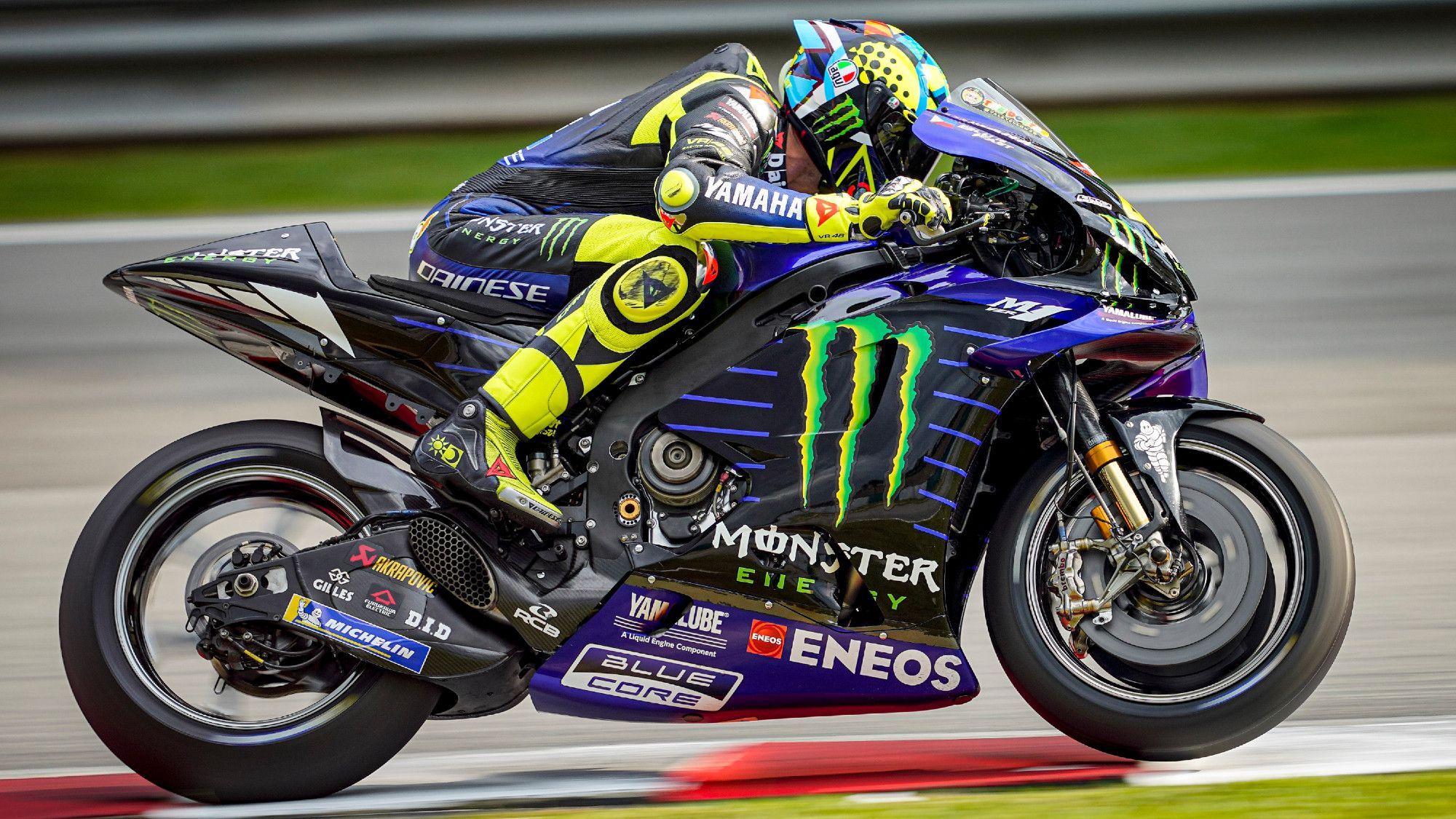
Yamaha M1 racing from left to right
Again, like the Honda RC213V, the ‘M1′ designation covers many years’ development of the original M1 bike of 2002 but, as Yamaha sees fit to make no distinction between the different years’ models, then neither can we and so Yamaha tops this list with an incredible 118 victories, even if Honda outstrips Yamaha in overall victories in the same period. At the dawn of the MotoGP era in 2022, Yamaha had been without a riders’ championship title since 1992. Yamaha’s MotoGP campaign didn’t start very well in the face of Honda’s and Rossi’s domination in 2002 and 2003. But then, in a move that rocked the MotoGP paddock, Rossi jumped ship to Yamaha for the 2004 season, winning that year and in 2005 and taking another two titles in 2008 and 2009, with Jorge Lorenzo taking a further three titles in 2010, 2012 and 2015. That 2015 title was an oasis in a sea of Marquez/Honda title victories and Yamaha’s next title came in 2021, courtesy of Fabio Quartararo, who looked like he would add another title in 2022 before Ducati’s Francesco Bagnaia overhauled his points deficit to snatch the title away.
No comments:
Post a Comment